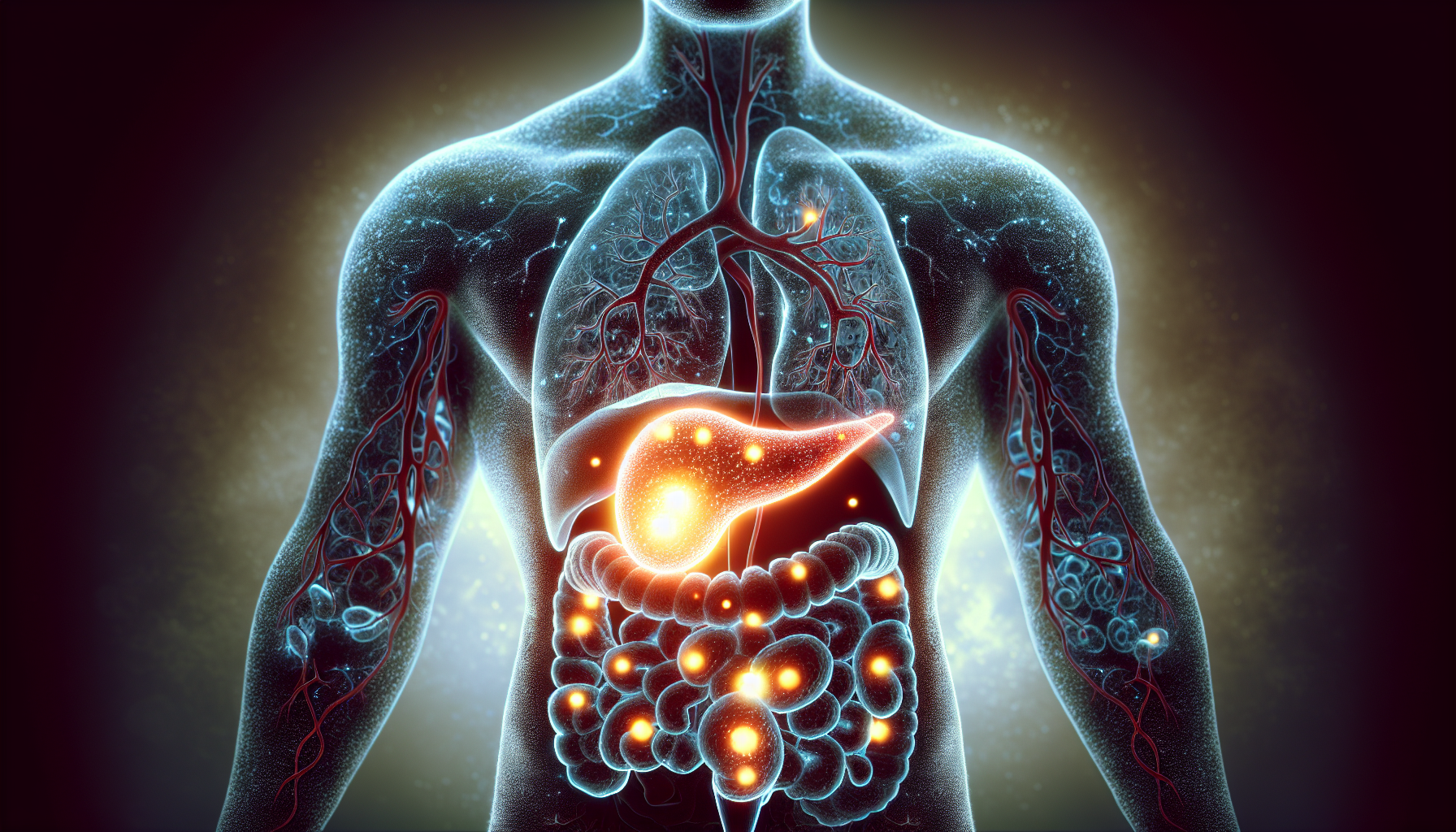Looking to unpack the intermittent fasting benefits? Get to the core of how this eating strategy impacts weight control, heart health, and insulin sensitivity. This concise guide strips away the myths and presents the science-backed upsides of timed eating patterns. Here’s what you need to know about the powerful changes intermittent fasting can invoke in your body, without overselling or overcomplicating the information. Prepare to understand the full scope of benefits that could potentially transform your well-being.
Intermittent Fasting Benefits Key Takeaways
-
Intermittent fasting promotes key hormonal changes, induces cellular repair through autophagy, and shifts the metabolism towards fat-burning, which can improve overall health and lose weight without muscle loss.
-
Practicing intermittent fasting can lead to significant health benefits, such as improved insulin sensitivity and blood sugar control, better heart health through changes in cholesterol levels and reduced blood pressure, and potentially positive impacts on brain health and function.
-
Intermittent fasting can be personalized through various methods such as daily time-restricted feeding, alternate-day fasting, and the 5:2 approach, but it should be undertaken with caution to avoid potential risks like exacerbating eating disorders, nutrient deficiencies, and may not be suitable for special populations.
The Science Behind Intermittent Fasting Benefits

The practice of intermittent fasting goes beyond its reputation as a weight loss method. It triggers significant changes in our body, resulting in improved overall health and wellness. This approach to eating has been found to have a profound effect on hormones, cellular repair mechanisms, and metabolism – all advantageous outcomes supported by scientific research.
Hormonal Changes
Intermittent fasting brings about a complex hormonal system in our bodies that plays an important role in maintaining our overall health. During this period, there is a significant change in the levels of hormones present. Insulin decreases, which aids us in burning fat effectively, while growth hormone increases to support muscle development and decrease body fat. Contrary to popular belief, intermittent fasting does not lead to loss of muscle mass, but actually helps preserve it by allowing the body to burn excess stored fat more efficiently. This is all due to the changes brought about by fluctuating hormone levels during intermittent fasting.
Cellular Repair Processes
Beyond surface-level changes, fasting has a profound impact on the inner workings of cells. It triggers a self-cleansing process called autophagy, which plays a crucial role in eliminating cellular waste and improving overall cellular well-being, especially during extended periods of intermittent fasting.
Metabolic Shifts
As we adjust our eating patterns, our metabolism also adapts. This results in a decrease in insulin resistance and changes to intermittent fasting glucose levels, paving the way for our bodies to switch gears. Rather than relying on glucose as fuel, it turns to burning ketones from stored fat instead. Not only does this promote weight loss, but it also leads to improvements in insulin resistance, cardiovascular health and possibly even brain health – all crucial components of overall metabolic well-being.
Intermittent Fasting Benefits – Weight Loss and Body Composition

One of the most intriguing benefits of intermittent fasting is its impact on weight loss and body composition, as well as its effects on various physiological processes. But how does this type of fasting specifically aid with shedding pounds, burning fat, and preserving muscle mass?
Calorie Restriction
When it comes to losing weight, the key is burning more calories than we consume. One effective method of achieving this balance is through intermittent fasting, which limits eating to specific periods. This approach not only help you lose weight but also has positive cardiovascular health benefits, highlighting some of the advantages associated with intermittent fasting’s calorie restriction aspect.
Fat Burning
Intermittent fasting offers more than just a decrease in calorie intake. It triggers changes in hormones and metabolism that enhance the body’s ability to burn fat, resulting in primarily losing fat instead of muscle while weight is being lost through this method.
Muscle Maintenance
Are you concerned about potential muscle loss while fasting? No need to fret. Fasting actually stimulates the secretion of growth hormone, which aids in preserving your muscle mass. This means you can shed weight without jeopardizing all those gains you’ve worked hard for.
Intermittent Fasting Benefits – Blood Sugar Control and Insulin Resistance

To promote weight loss, intermittent fasting can also be a useful approach for managing blood sugar levels and addressing insulin resistance. This makes it a potential ally in the fight against type 2 diabetes, especially for those at risk of developing this condition.
Lowering Blood Sugar Levels
Managing blood sugar levels doesn’t necessarily require a drastic change in diet. By incorporating fasting into our routine, insulin sensitivity increases and thus results in lower blood sugar levels and improved control over them.
Reducing Insulin Resistance
Aside from lowering blood sugar levels, fasting also combats insulin resistance. By enhancing our body’s response to insulin, fasting can effectively address the issue of insulin resistance, which affects proper regulation of blood sugar in the body.
Intermitten Fasting Benefits – Heart Health and Cardiovascular Risks

Intermittent fasting is a valuable approach to improving human health, particularly in regard to heart health and disease processes, which remains a leading cause of death worldwide. The practice offers various benefits, including cardiovascular advantages, among its numerous positive effects on the body.
Cholesterol Levels
In addition to its ability to help with weight loss, intermittent fasting can also have a positive impact on your lipid profile. It has been shown to potentially increase levels of HDL (good) cholesterol while possibly decreasing levels of LDL (bad) cholesterol. This highlights the potential benefits that intermittent fasting may have for improving overall cardiovascular health.
Blood Pressure
Intermittent fasting has been shown to be a beneficial method for managing high blood pressure, which is considered a major risk factor for heart disease. This approach indirectly aids in weight loss and improves insulin sensitivity, both of which can contribute to lower blood pressure levels.
Inflammation
It may surprise you to learn that inflammation is a significant contributor to heart disease. One way to combat this issue is through fasting, which can decrease inflammation and potentially lessen the development of heart disease. This intervention has the potential to positively impact both overall health as well as specific diseases processes related to the heart.
Intermitten Fasting Benefits – Brain Health and Cognitive Function

The advantages of fasting extend beyond physical health and also have positive effects on the brain. These benefits include improved cognitive function and a potential decrease in the chances of developing neurodegenerative disorders, making it clear that fasting has many valuable perks to offer.
Neurogenesis
Abstaining from food can trigger the growth of new neurons, known as neurogenesis. This results in increased brain plasticity, which contributes to better cognitive function and overall well-being of the brain.
Alzheimer’s Disease
Recent studies indicate that fasting may have the potential to decrease the likelihood of developing Alzheimer’s disease, which is a top contributor to dementia. Although research with human participants is necessary, both animal and initial human evidence shows promising results in support of this idea.
Stroke Protection
Through fasting, we can add an extra level of protection to our brain health by shielding it from potential damage caused by stroke. This practice acts as a safeguard for the well-being of our brains and serves as another means to improve our brains.
Fasting Methods and Personalization
Intermittent fasting offers a variety of options with different approaches and advantages. It does not follow a single approach for everyone but provides multiple methods that outline specific regimens to reap various benefits.
Daily Time-Restricted Feeding
A common method for intermittent fasting is daily time-restricted feeding, where meals are consumed within a set timeframe, such as 8 hours, followed by a period of fasting lasting 16 hours. This approach involves restricting food intake to specific windows each day with designated periods of not consuming any foods or beverages.
Alternate Day Fasting
One effective method for significant weight loss is alternate-day fasting, where you switch between days of fasting and unrestricted eating. This approach can yield great results and may be particularly beneficial for individuals seeking to shed a large amount of pounds.
5:2 Intermittent Energy Restriction
One commonly used method for weight loss is the 5:2 intermittent energy restriction, which involves eating a regular diet for five days and significantly reducing calorie consumption on the remaining two days. This approach allows for periods of normal food intake along with restricted caloric intake to achieve desired results.
Intermittent Fasting Benefits – Precautions and Potential Risks
While intermittent fasting is considered a safe practice, it is important to be aware of potential risks and take necessary precautions. This applies especially for specific demographic groups who may have different needs or considerations when implementing this type of eating.
Eating Disorders
Intermittent fasting could potentially worsen existing patterns of disordered eating. It is essential to monitor your food habits closely while practicing intermittent fasting and seek help from a professional if you notice any harmful behaviors.
Nutrient Deficiencies
It is important to carefully monitor one’s diet during eating periods in order to prevent nutrient deficiencies. A well-balanced and richly nutritious diet must be maintained in order to ensure good health.
Special Populations
Individuals belonging to specific demographics such as expectant mothers, nursing mothers and minors should exercise caution when contemplating intermittent fasting.
Prior to starting a new diet plan, it is essential to consult with a medical expert for guidance.
Intermittent fasting is a flexible diet strategy that has the potential to bring about various benefits such as shedding excess weight, improving metabolic health, enhancing cardiovascular well-being and boosting brain function. There are also associated risks with this method of eating. It is important to approach intermittent fasting in a balanced manner by personalizing it according to your specific needs and lifestyle.

Intermittent Fasting Benefits – Frequently Asked Questions
What are 5 benefits of intermittent fasting?
Intermittent fasting can bring about a multitude of advantages, including enhanced cognitive function and memory, better heart health, improved physical performance and tissue well-being. It has shown potential in managing type 2 diabetes and obesity.
In order to reap these benefits, one may want to consider incorporating intermittent fasting into their daily routine. Doing so could lead to significant improvements in various aspects of overall health, such as cardiovascular wellness specifically.
Why is 16 hours the magic number for fasting?
A fasting period of 16 hours is often viewed as the optimal time for promoting body fat burning. This longer duration allows for a more significant depletion of glycogen stores, leading to an increase in fat-burning activity within the body.
It should be noted that both shorter periods (such as 12-hour fasts) and extended periods (like 16-hour fasts) can still have a positive impact on triggering fat burning. Opting for a longer fasting period may potentially yield greater results when it comes to this aspect.
Is it OK to intermittent fast everyday?
Yes, it is generally okay to intermittently fast every day, but it’s important to consult with a doctor before starting. After getting medical approval, you can choose to follow a daily approach to intermittent fasting.
Is it better to fast for 12 or 16 hours?
It is better to fast for 16 hours as it may lead to greater reduction in overall caloric intake and promote more significant reliance on fat burning.
Can intermittent fasting lead to nutrient deficiencies?
Intermittent fasting may cause deficiencies in essential nutrients if a well-rounded diet is not maintained during the times of eating. It is important to pay attention to one’s nutritional needs and ensure they are being met to prevent any potential deficiencies while practicing intermittent fasting.
Home Gym Essentials
-
Apple iPad (9th Generation)
$329.00Original price was: $329.00.$249.00Current price is: $249.00. -
Samsung Galaxy Tab S7+
$849.99Original price was: $849.99.$499.99Current price is: $499.99. -
Microsoft Surface Pro 7
$680.99 -
SUUNTO 5 Peak GPS Sports Watch
$199.00 -
BODY-SOLID Multi-Station Home Gym
$5,495.00Original price was: $5,495.00.$4,395.00Current price is: $4,395.00. -
Echelon Fitness Smart Treadmill
$1,299.99 -
Echelon EX-3 Smart Bike
$472.80 -
SMARTRAVEL Electric Bike
$1,699.99 -
Dynapro Exercise Ball
$27.99 -
Ultimate Ears WONDERBOOM 3
$99.99Original price was: $99.99.$79.99Current price is: $79.99. -
Bose SoundLink Bluetooth Speaker
$149.00





















